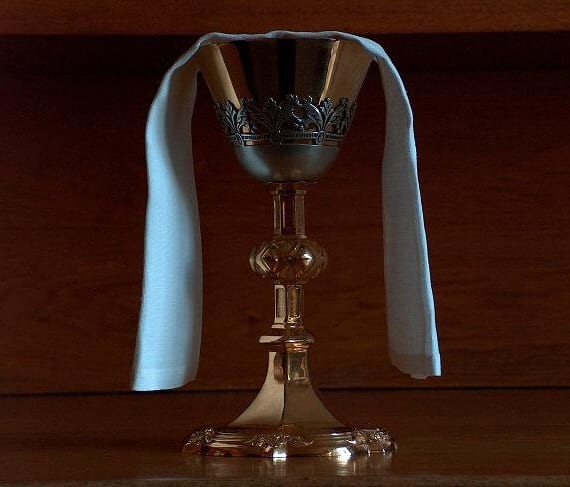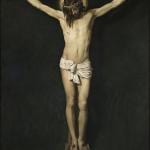
It is completely understandable that many people are outraged by abuses in the Mass. When the rubrics are violated it is scandalous and the laity have every right to protest and try to reform the mistaken, erroneous, improper practices.
Lots of things are routinely violated. For example, the use of Extraordinary Ministers of Holy Communion is supposed to be restricted to, well, “extraordinary” circumstances (hence the name). As we know, that guideline is hardly ever applied. The Vatican document Inaestimabile Donum (1980) stated:
The faithful, whether religious or lay, who are authorized as extraordinary ministers of the Eucharist can distribute Communion only when there is no priest, deacon, or acolyte, when the priest is impeded by illness or advanced age, or when the number of the faithful going to Communion is so large as to make the celebration of the Mass excessively long. (Instruction Concerning Worship of the Eucharistic Mystery, by the Sacred Congregation for the Sacraments and Divine Worship; Approved and Confirmed by His Holiness Pope John Paul II April 17, 1980; section 10)
This instruction was strongly reiterated in 1987. Catholic apologist Jimmy Akin devotes five pages to the topic (pp. 51-55), nailing down the point repeatedly, in his book Mass Confusion: The Do’s and Don’ts of Catholic Worship (San Diego: Catholic Answers, 1999).
The adjective “extraordinary” sets the tone — they are to be used in extraordinary circumstances and having them every week or even every day hardly sounds extraordinary . . .
The Holy See views the use of extraordinary ministers as an unusual occurrence, resulting from emergency situations; thus it regards the present American scene as anomalous at best and aberrant at worst. I could not state the case any stronger . . .
I don’t know how it is possible to applaud something so blatantly wrong and in violation of all liturgical norms, and done on so grand a scale in our country. In general, I do not think most extraordinary ministers are to blame personally; rather, they have been sold a bill of goods by their priests who, for a variety of reasons, wish to pass off this unique aspect of their ministry to the unordained . . .
What I have said to this point faithfully reflects Church teaching and discipline. Any person of good will can readily perceive that; those of bad will shall not accept it, regardless of how often the case is argued. . . .
This is one of the most serious problems to emerge in the postconciliar Church in America, since it touches on the very heart of Catholic Faith and practice . . .
The improper use of extraordinary ministers of the Eucharist is, of course, a violation of correct liturgical procedure. However, two other serious problems also present themselves: a lost sense of the sacred and a distorted view of the lay apostolate . . .
By permitting nearly anyone at all to distribute the Eucharist, we are communicating a message at the symbolic level that this action is really not all that special . . . Pope John Paul II criticized the abuse of the permission for extraordinary ministers as “reprehensible.” . . .
One final area of concern revolves around the significance of the lay apostolate. It never ceases to amaze me as a priest that when I invite people to become active in the work of the Church, almost invariably they volunteer for liturgical ministries. This demonstrates that Vatican II is still not fully understood. The whole point of the council’s theology of the laity was that the laity had their own unique role to play in bringing the Gospel to contemporary humanity — in the world, not in the sanctuary. . . .
The role of the priest is to preach and administer the sacraments, so that the laity can be faithful witnesses in the world, thus inviting people there to follow Christ. . . .
Please note that we are not concerned with heresy here but with an imprudent, unwise liturgical practice, reflective of bad sociology. Like other Americanisms in the Church, this one fails to take a holistic view of reality, neglects long-range implications, and does not take seriously the nonverbal, symbolic power of liturgical communication. (The Catholic Answer Book, Huntington, Indiana: Our Sunday Visitor, 1990, pp. 90-94; from published articles in The Catholic Answer magazine between 1987 and 1990)
Pope St. John Paul II alluded to the abuses in his encyclical Christifideles Laici (The Vocation and Mission of the Lay Faithful in the Church and the World: 30 December 1988):
In the same Synod Assembly, however, a critical judgment was voiced along with these positive elements, about a too- indiscriminate use of the word “ministry,” the confusion and equating of the common priesthood and the ministerial priesthood, the lack of observance of ecclesiastical laws and norms, the arbitrary interpretation of the concept of “supply,” the tendency toward a “clericalization” of the lay faithful and the risk of creating, in reality, an ecclesial structure of parallel service to that founded on the Sacrament of Orders. (section 23)
By no means is all concern for a traditional, reverent Mass according to the rubrics that Holy Mother Church has established, of radical Catholic reactionary origin. I am of this thinking myself, and I have very little tolerance for the reactionaries, having written two books critiquing them and also having maintained for years a web page detailing their errors. No one could ever accuse me of being soft on them!
*
Instruction on Certain Questions Regarding the Collaboration of the Non-Ordained Faithful in the Sacred Ministry of Priest (Libreria Editrice Vaticana, Vatican City, 1997)
Vatican instruction on the Eucharist to avoid abuses, Francis Cardinal Arinze (23 April 2004; excerpts: see the last section)
Liturgical Roles in the Eucharistic Celebration, Francis Cardinal Arinze (from his book, Celebrating the Holy Eucharist)
The All Too Ordinary Use of Extraordinary Ministers, Brian Williams (8-26-13)
Breaking Bad Liturgical Habits, George Weigel (National Catholic Register, 10 January 2012)
Are Extraordinary Ministers the Norm?, Fr. Edward McNamara (EWTN / Zenit, 10-14-03)
Extraordinary Ministers of Holy Communion at Mass (USCCB, 2010)
***
Unfortunately, Money Trees Do Not Exist: If you have been aided in any way by my work, or think it is valuable and worthwhile, please strongly consider financially supporting it (even $10 / month — a mere 33 cents a day — would be very helpful). I have been a full-time Catholic apologist since Dec. 2001, and have been writing Christian apologetics since 1981 (see my Resume). My work has been proven (by God’s grace alone) to be fruitful, in terms of changing lives (see the tangible evidences from unsolicited “testimonies”). I have to pay my bills like all of you: and have a (homeschooling) wife and three children still at home to provide for, and a mortgage to pay.
My book royalties from three bestsellers in the field (published in 2003-2007) have been decreasing, as has my overall income, making it increasingly difficult to make ends meet. I provide over 2500 free articles here, for the purpose of your edification and education, and have written 50 books. It’ll literally be a struggle to survive financially until Dec. 2020, when both my wife and I will start receiving Social Security. If you cannot contribute, I ask for your prayers. Thanks! See my information on how to donate (including 100% tax-deductible donations). It’s very simple to contribute to my apostolate via PayPal, if a tax deduction is not needed (my “business name” there is called “Catholic Used Book Service,” from my old bookselling days 17 or so years ago). May God abundantly bless you.
***
(originally 11-20-08; bad links removed and new ones added on 9-20-19)
Photo credit: [Wikimedia Commons / Creative Commons Attribution-Share Alike 3.0 Unported license]
***
















